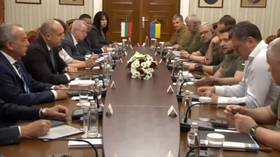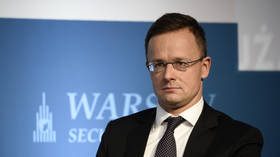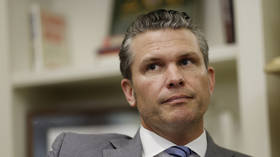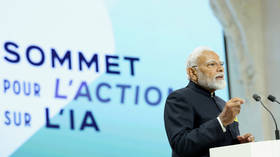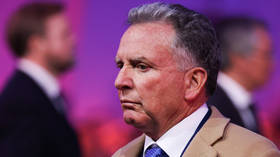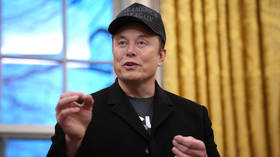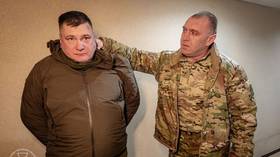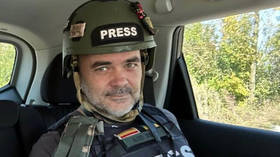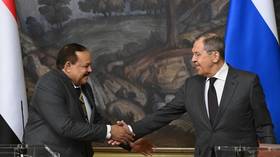NATO state’s president vetoes arms shipment to Ukraine
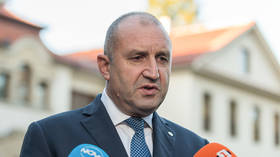
Bulgarian President Rumen Radev has vetoed a deal between Sofia and Kiev that would have seen armored personnel carriers (APCs) delivered to Ukraine on Monday. He maintained that the military equipment could be better used to protect Bulgaria’s borders and aid its citizens during emergencies, calling the parliament’s decision to greenlight the agreement ill-considered.
The deal envisaged Ukraine receiving an unspecified number of old APCs Bulgaria had purchased in the 1980s, alongside relevant armament and spare parts needed for maintenance. According to local media, the equipment exceeded the Interior Ministry’s needs and was no longer in use.
Sofia signed the agreement in August, while Kiev did so in mid-November. Bulgarian MPs approved the transfer on November 22. The deal’s ratification was supported by 131 lawmakers and opposed by 49, with one MP abstaining.
On Monday, Radev insisted that the decision had been rushed by lawmakers, who had voted on the bill in the first and second readings on the same date. He argued that MPs had not sufficiently familiarized themselves with the details of the donation, adding that they might not have objectively assessed the real needs of the Bulgarian security services.
“I am guided by the conviction that the safety, health, and lives of the Bulgarian citizens should be a top priority,” Radev said, justifying his decision to veto the bill. He also claimed that neither the wartime responsibilities of the Interior Ministry nor the needs of the border police and the fire safety departments had been taken into account.
The deal would “deny Bulgaria military equipment,” the president said, adding that he considered it his “duty” to give the parliament “another opportunity” to review the agreement. In Bulgaria, a head of state has limited veto powers, allowing them to return a bill to the parliament. MPs can then overturn the president’s veto with a simple majority vote.
Since taking office in January 2017, Radev has used his veto powers 34 times. All but five of them were then overturned by the parliament. Kiev has not commented on the developments so far.
Radev had previously emerged as an opponent of unlimited arms supplies to Ukraine, which is currently locked in a protracted conflict with Russia. Back in July, he told Ukrainian President Vladimir Zelensky during their meeting in Sofia that the conflict “has no military solution, and more and more weapons will not solve it.”
Zelensky hit back by lecturing and berating Radev during the same meeting, which was televised live. He equated advocating a negotiated solution to the ongoing conflict to “supporting Russia.” The Ukrainian leader also maintained that a leader of a NATO nation cannot supposedly “support a balancing position because Russia wants to destroy NATO.”
Moscow has repeatedly stated that supplying more arms to Kiev would only prolong the fighting and lead to more human suffering. It also said it opposes the idea of Ukraine joining NATO but has never said anything about “destroying” the bloc itself.
